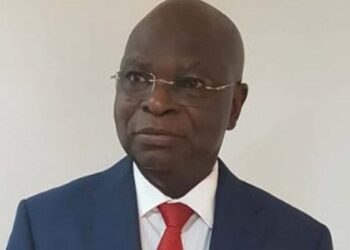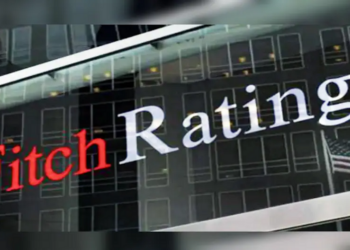The Governor of the Central Bank of Nigeria (CBN), Yemi Cardoso, has said that the amount spent on foreign education and medical tourism contributes to Nigeria’s foreign exchange challenges.
In a detailed presentation to the House of Representatives on Tuesday, Cardoso highlighted that an alarming $40 billion has been expended on foreign education and healthcare, a factor contributing to the devaluation of the Naira, which has plummeted to over N1,400 in the official market.
Cardoso said:
- “Given this data, it is crucial to highlight that between 2010 and 2020, foreign educational expenses amounted to a substantial $28.65 billion, according to the CBN publicly available balance of payment statistics.
- “Similarly, medical treatment abroad has entered around $11 billion in costs during the same period. Consequently, over the past decade, foreign exchange demand for education and healthcare has totalled nearly $40 billion.
- “Notably, this amount surpasses the total foreign exchange reserves of the CBN. Mitigating a significant portion of this demand could have resulted in a considerably stronger naira today.”
The CBN chief also said that Personal Travel Allowances (PTAs) cost about $58.7 billion in 10 years, adding that the apex bank released $9.01 billion to Nigerians for personal foreign travel between January and September 2019. Nairametrics earlier provided details into the amount of FX spent on PTAs.
High demand pressure, low FX supply
The CBN governor decried the amount of pressure in the foreign exchange market amidst forex scarcity, which adds to the depletion of naira value.
He said:
- “Nigerian foreign exchange market is currently facing increased demand pressures, causing a continuous decline in the value of the naira.
- “Factors contributing to this situation include speculative forex demand, inadequate forex supply due to non-remittance of crude oil earnings to the CBN, increased capital outflows, and excess liquidity from fiscal activities.”
The CBN governor noted that with the huge demand for foreign education, healthcare, professional services, personal travel, and similar needs, the exchange rate faces significant pressure.
He added:
- “On the supply side of the exchange rate, to bolster the inflow of US Dollars into a country, the economy must “earn” these dollars through exports, whether oil or non-oil or by attracting foreign investments.
- “A robust economic foundation is essential to produce goods and services that the global market is willing to pay for in US Dollars. When such supply surpasses demand, the exchange rate appreciates, causing the price of the dollar to fall. Unfortunately, in Nigeria, the contrary has taken place.”
The CBN has been actively managing these expenditures through its approved rate for school fees and healthcare payments. Cardoso pointed out a notable shift in the pattern of demand for Personal Travel Allowance (PTA) for overseas education fees, a trend that has evolved considerably since the early 1990s.
Reforms ongoing
Cardoso also said the CBN is making critical reforms to address exchange rate volatility. Some of these reforms include unifying FX market segments, settling outstanding FX obligations, introducing new operational mechanisms for BDCs, implementing the Net Open Position limit, and amending the remunerable Standing Deposit Facility cap.
























That means between Buhari and Tinubu more than $20b have been spent on medical tourism for the two presidents.
Chai….who did this to us?
And Atiku at 77yrs old is warming up for 2027 elections when he would ve 81yrs old.
Aso Rock has been ridiculed to old age care centre 🤣🤣🤣